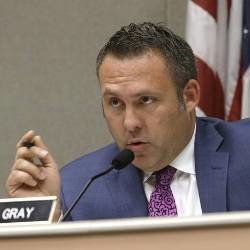California iPoker Bill Gains Important Amendment

For several years, online poker players in California have been hoping to see a bill that would allow them to finally play the game legally. Legislators do seem eager to move forward with legalization, but there has been a major barrier to progress, namely the tribal leaders who operate the state’s casinos. So far, the tribes have been reluctant to support online poker, wanting specific concessions and language in the bill to be in place before they will agree to back it.
In early February, representatives of 12 tribes did finally come to the table to discuss the matter, leading some Sacramento insiders to gamble on the fact that a consensus on California’s long awaited online poker legislation might be a little closer to becoming a reality. Some of their major convergences have subsequently been included in a new bill, called the Internet Poker Consumer Protection Act of 2016 (AB 2863), that was introduced mid-February by Assemblymen Adam Gray (photo) and Reginald Jones-Sawyer.
Sacramento Meeting with Assemblyman Gray
Here are some of the details of the meeting:
– The Numbers Are Questionable. Tribal leaders are skeptical that the current plan for iPoker will have the ability to turn a profit. One representative said that with the proposed taxation, it would take at least four years for iPoker sites to operate in the black. That doesn’t give tribal leaders much incentive.
– Racetracks Will Be Shut Out. One thing that tribal leaders seem to be firm on is that they do not want racetracks to be eligible to hold iGaming licenses. The tribal representatives were united in the belief that an amendment was needed that would restrict licensing to tribes and to approved card rooms only.
– Wording Is In Question. Another part of the proposed bill that is troublesome to tribal leaders is the term “bad actors.” The bill says that so-called bad actors would be ineligible for licensing; however, tribal leaders say that this term is not well defined enough for them to lend their support to the bill. Without a better explanation of exactly what would constitute a bad actor, the tribes are unlikely to back the legislation.
– DFS Is a No Go. The tribal leaders were united on one front, namely an opposition to daily fantasy sports betting. From the meeting, it’s clear that tribal leaders wish to discuss daily fantasy sports betting as a separate matter, as there are serious concerns about the legality of the form of gaming.
Progress Made
How the Sacramento meeting went initially depended on who you asked. Representatives for the tribes present at the meeting shared different impressions of how the meeting went. Some felt that no real progress was made, while others said that the meeting was a positive step forward. Nevertheless, it is now apparent that enough support was mustered for Assemblyman Adam Gray to introduce his new bill, AB 2863, in the California Assembly, although only time will tell if Gray can get the support that he needs to make online poker a reality in The Golden State.
Details of AB 2863
On February 19th, Assemblymen Adam Gray and Reggie Jones-Sawyer introduced online poker bill AB 2863 to the State Assembly, and by Tuesday it had gained wide support amongst the 33 tribes which comprise the California Nations Indian Gaming Association (CNIGA). Commenting on the positive development, CNIGA chairman Steve Stallings said:
“Many don’t want to just sit in front of a slot machine or at a card table. They want a different experience. That is why CNIGA issued a set of Internet gaming principles to meet the changing times. It appears that Assemblyman Gray’s AB 2863 meets those stated principles and we are supportive of.. efforts to allow gaming Tribes the option to adapt to the changing technology.”
Included in the bill proposals is a $60 million yearly payment to California’s horse racing industry in return for them being excluded from operating regulated iPoker sites. In addition, there appears to be no mention of a “bad actor” clause that many tribes initially sought to include. This is possibly due to the positive impact of PokerStars having recently been granted a license to operate in New Jersey regulated market.
On the flip side, the bill seeks to keep Californian players ring-fenced from other US markets, and make it a felony for them to play on unregulated poker sites post-legislation. Furthermore, online poker will not be available for almost two years following enactment, leaving the state’s poker players out in the cold for this extended period of time.










